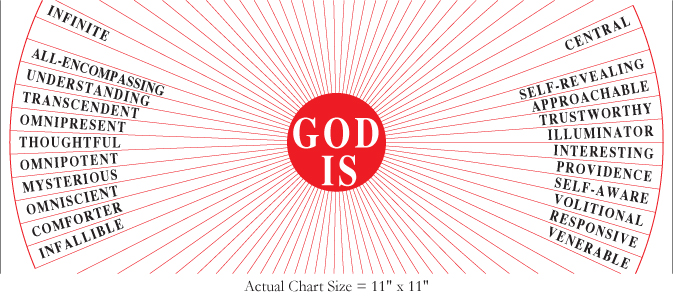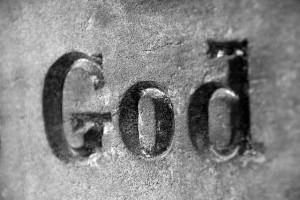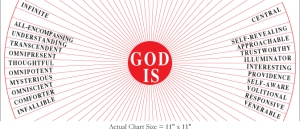Theology truly matters. Often, many individuals do not ponder the attributes of God. However, it is important for an individual, especially the believer, to acknowledge the grandeur of Almighty God. It is especially important for one to hold an understanding, at least on a basic level, of the non-moral attributes of God. Non-moral attributes represent the characteristics of God’s being that does not relate to God’s moral nature. For instance, love would be a moral attribute, whereas omnipotence would be a non-moral attribute. Acknowledging these non-moral attributes of God can strengthen the faith and provide comfort for the believer in many ways. This article will consider some of the ways that knowing each non-moral attribute of God can provide comfort and strength to the believer.
The Aseity of God
John S. Feinberg defines aseity as that “God depends on nothing other than himself for his existence.”[1] Feinberg later states that “Aseity…is best understood as God’s self-existence.”[2] It is important for the Christian to understand that God depends upon nothing for His existence. In fact, the apostle John described what this means when he wrote that “All things were made through him, and without him was not any thing made that was made” (John 1:3). The Christian can take comfort in knowing that everything depends upon God, yet God depends upon nothing. Such knowledge should keep the Christian humble.
The Infinity of God
Feinberg describes that the infinity of God is defined as “that he is free from limitations.”[3] While there is much that could be addressed concerning the infinitude of God, it is especially important for Christians to be aware of the fact that God is beyond limitations. This is particularly addressed by then angel of God when he indicated to Mary that “nothing will be impossible for God” (Luke 1:37). Or, consider the statement of Jesus when He said, concerning salvation, that “with man this is impossible, but with God all things are possible” (Luke 19:26). When Christians understand that God is infinite, they will not live as though they are defeated. Rather, they will depend upon the infinite power of God.
The Omnipresence of God
One of the most comforting aspects of God’s non-moral attributes is that of God’s omnipresence. God’s omnipresence “signifies that God is present in the totality of his being at each point in space.”[4] While it is intriguing to consider how God is present with unbelievers, it should be comforting for believers to know that they, and their loved ones, hold a personal relationship with this ever-present God. This is particularly comforting when one considers that this God is present with one’s family when no one else can. For God transcends any earthly and universal distance. In addition, one should also take note that God sees all. As Solomon states, “The eyes of the LORD are in every place, keeping watch over the evil and the good” (Proverbs 15:3). Nothing escapes God’s attention.
The Eternal Nature of God
Feinberg states that “God’s infinity in relation to time is eternity.”[5] Undoubtedly, God’s eternal nature is of greatest comfort to an individual when one or a loved one approaches the point of death. Jesus eloquently promises that a believer “though he die, yet shall he live, and everyone who believes in me shall never die” (John 11:25-26). Thus, the believer can take comfort in knowing that the believer will never really taste death, but will be ushered into the eternal presence of God at the point of death.
The Immutability of God
Immutability is understood in that “God is unchanging.”[6] The world is ever-changing. Technological advances tend to change the way individuals live from year to year. People change. However, the one constant is that God never changes. While there are debates as to the extent of God’s immutability, it cannot be argued that God’s nature never changes. The Christian can be comforted in knowing that “Jesus Christ is the same yesterday and today and forever” (Hebrews 13:8).
The Omnipotence of God
Feinberg persuasively argues that God’s omnipotence is defined as that “of a being with unlimited power to do all the things a being with God’s other perfections could possibly do.”[7] Thus, as mentioned earlier, one can take comfort in knowing that God can do what no one else could.
The Sovereignty of God
Sovereignty is tied to omnipotence. Feinberg states that “Whereas omnipotence tells how much and which powers God has, sovereignty clarifies the extent to which God uses those powers.”[8] This writer is of the Congruist persuasion, termed by Norman Geisler as “moderate Calvinism.”[9] Congruism allows for God’s middle knowledge. Even so, such compatibilist models allow for divine sovereignty and human freedom as a cooperative function. Nonetheless, the Christian can take comfort in knowing that God has everything under control. Even when the world seems chaotic, God is still in charge.
The Omniscience and Omnisapience of God
Omniscience and omnisapience are two related concepts. Omniscience addresses God’s ability to know “all things in general and that his understanding and knowledge are unlimited.”[10] God’s omnisapience indicates that God is “all-wise.”[11] Thus, God both knows everything and knows what to do with the knowledge that He possesses. When the believer is confused and does not know which way in which he or she should go, it would be comforting for the believer to know that God knows everything and knows how that he or she should live. In addition, God will impart wisdom and knowledge to the believer.
The Unity of God
Finally, it is important for the believer to understand the unity of God. The unity of God describes the fact that God is the only god that exists. There is not another. Thus, the believer should know the identity of God and the importance of focusing on the truth pertaining to the one God.
Conclusion
The Christian leader needs to stress the non-moral attributes of God. While these attributes are often complex and stretch the boundaries of the imagination, great comfort comes when one understands the amazing limitless attributes of the Creator. Perhaps the Christian leader could deliver a series of messages on these attributes. If so, the series may be one that the Christian would never forget.
Note: This work represents the academic work of Pastor Brian Chilton. The contents of this article have been submitted to the author’s university. Any attempt to improperly use the information found within this article for academic papers without proper citation may result in charges of plagiarism.
Bibliography
All Scripture, unless otherwise noted, comes from the English Standard Version. Wheaton: Crossway, 2001.
Feinberg, John S. No One Like Him: The Doctrine of God, Foundations for Evangelical Theology. Wheaton: Crossway, 2001.
Geisler, Norman L. Chosen but Free:A Balanced View of God’s Sovereignty and Free Will. Minneapolis: Bethany House, 2010.
Copyright. Pastor Brian Chilton. 2014.
_________________________________________________________
[1] John S. Feinberg, No One Like Him: The Doctrine of God, Foundations for Evangelical Theology (Wheaton: Crossway, 2001), 239.
[2] Ibid, 242.
[3] Ibid, 243.
[4] Ibid, 249.
[5] Ibid, 255.
[6] Ibid, 264.
[7] Ibid, 294.
[8] Ibid.
[9] Norman L. Geisler, Chosen but Free:A Balanced View of God’s Sovereignty and Free Will (Minneapolis: Bethany House, 2010), 19.
[10] Feinberg, 299.
[11] Ibid, 320.








